Science Programme
Dunman High School offers a progressive six-year science education where students joining us from PSLE develop skills and knowledge in a structured and holistic way. Science education extends beyond the classroom, with opportunities for students to engage in research, participate in national competitions, and take on leadership roles by organising science-related events for their juniors.
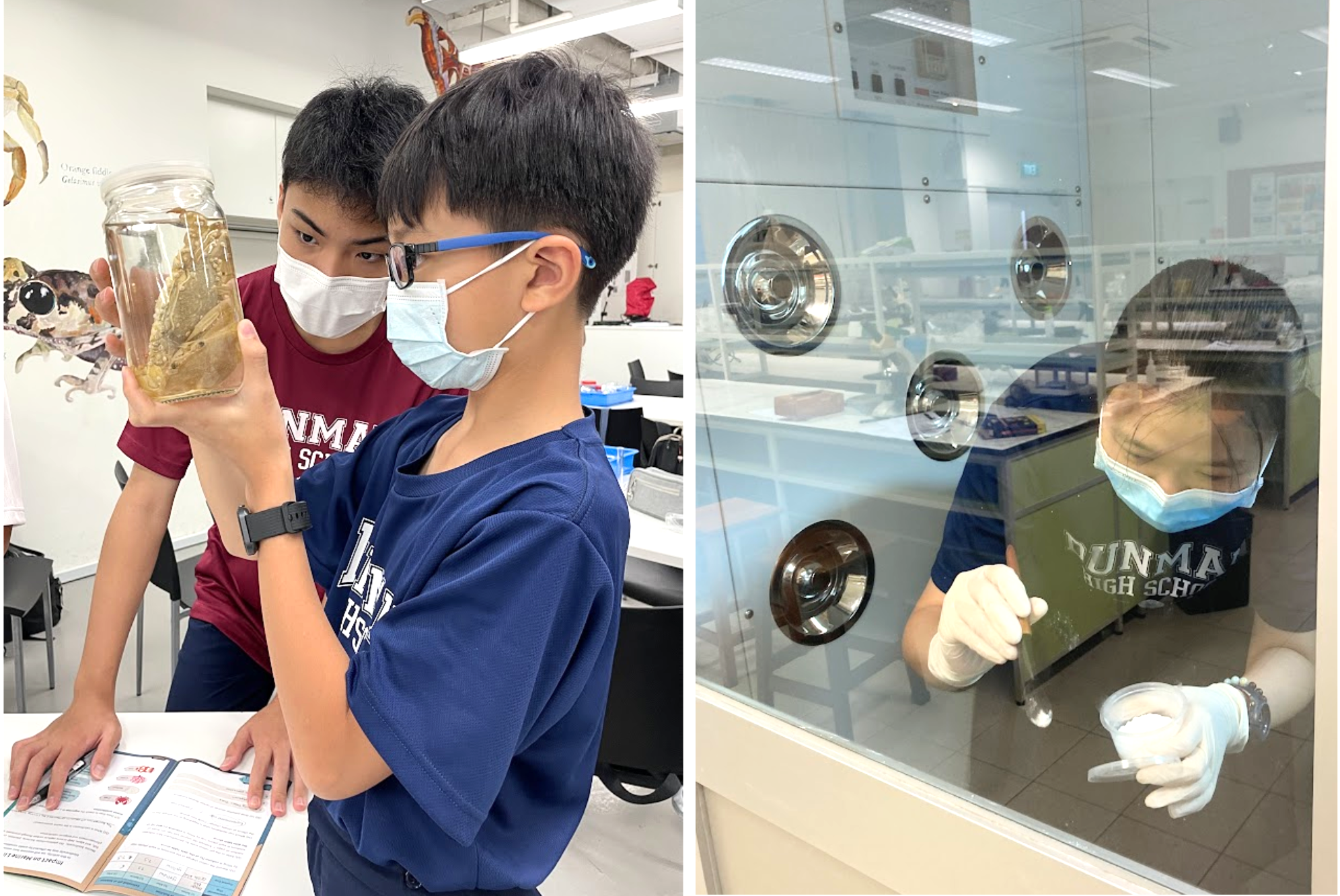
These experiences empower students to apply their scientific understanding meaningfully, fostering a culture of inquiry, innovation, and collaboration. For students entering DHS via the Joint Admission Exercise, the Senior High Science programme is designed to integrate them smoothly with IP students, ensuring continuity and coherence in learning.
Curriculum
The DHS Science Programme enables students to:
-
develop an interest in matters of scientific importance
-
develop skills and attitudes in the study and practice of science (Demonstrating Ways of Thinking & Doing in Science)
-
be able to recognise the usefulness and limitations of scientific methods (Understanding the Nature of Scientific knowledge)
-
appreciate scientific applications in various disciplines and in everyday life (Relating Science, Technology, Society & Environment)
-
develop 21st Century Competencies, with focus on Critical Thinking, Adaptive Thinking, Inventive Thinking, Communication and Civic Literacy
|
Subject / Programme |
|
|---|---|
|
Junior High Science |
Lower Secondary Science is organised around five themes, which provide the foundational concepts that students need for the disciplinary Sciences (Biology, Chemistry and Physics) at upper secondary. The Lower Secondary Science curriculum encompasses five themes, namely: The Scientific Endeavour, Diversity, Models, Interactions and Systems. For Upper Secondary Science, students are offered to take Biology, Chemistry and Physics. Students who show exceptional aptitude in Science may opt to study Science subjects at the D2 level, where they delve deeper into selected topics, challenging themselves with enriched content and greater conceptual depth. |
|
Senior High Science |
Aligned to the A level curriculum, students pursue Science subjects, Biology, Chemistry and Physics at the different levels (H1, H2 or H3) depending on their interests and abilities and are offered to take the Singapore-Cambridge General Certificate of Education Advanced Level examinations. The study of Sciences at Senior High builds on the foundations and knowledge acquired at Junior High/ O-level and develops deeper understanding and application of scientific concepts and principles at a higher level. Beyond knowledge and skills, the Senior High Science programme aims to develop in students the discipline, values and attitudes that will enable them to apply their knowledge in an ethical way. |
Content
Beyond the Science Programme, our school offers differentiated enrichment to cater to diverse learning needs and interests. At the foundational level, students explore various scientific fields through learning journeys, workshops and Enrichment Modules in areas such as microbiology, forensic science, and cosmetic science. Those with a strong interest in science can further hone their investigative and problem-solving skills through mentorship programmes and competitions, including participation in our Science Mentorship Programme (science research) and Science Olympiads.
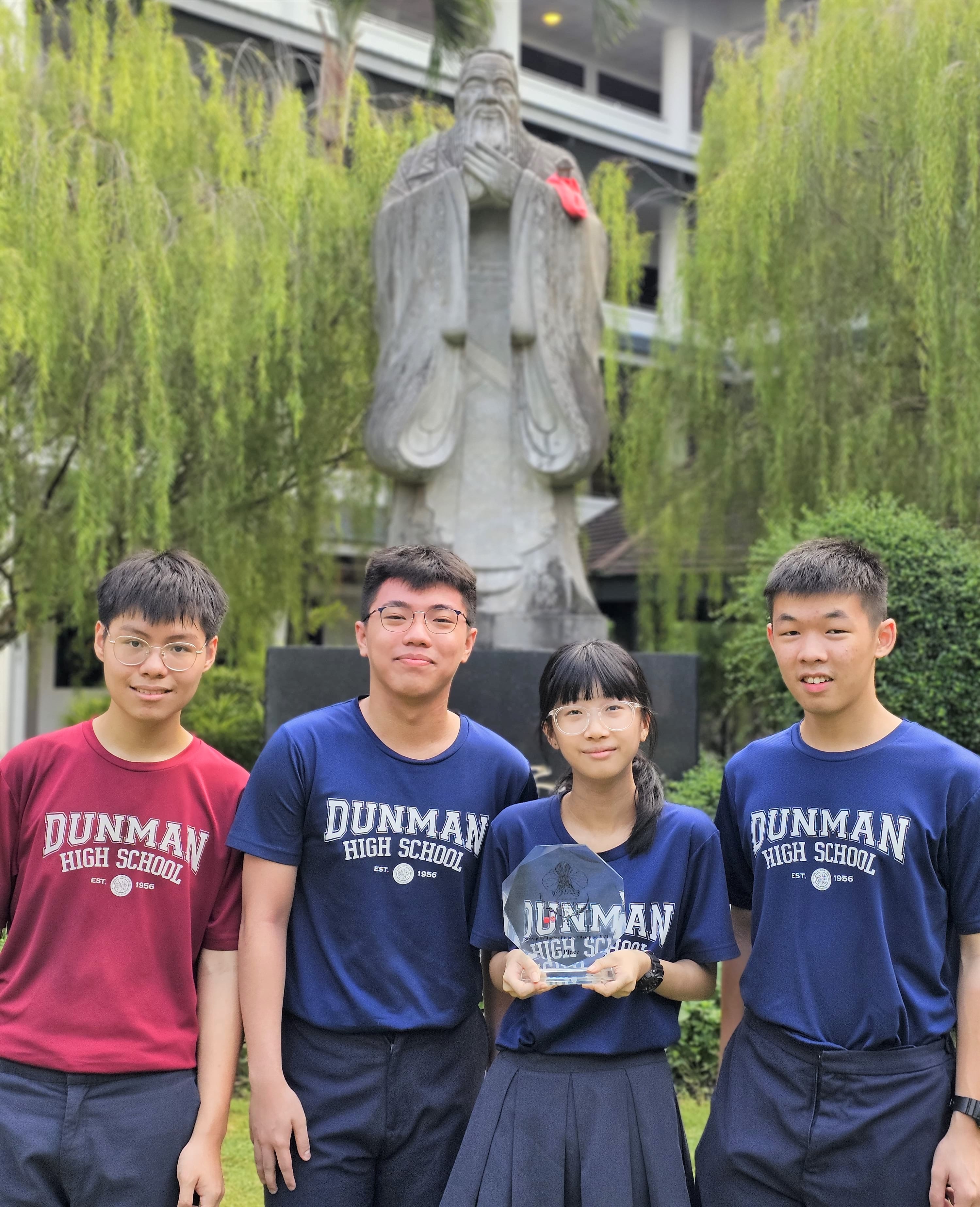
At the advanced level, students undertake in-depth research, working independently or in small groups to address real-world challenges under guidance of an expert mentor. As a culmination of their work, they have the opportunity to present their findings at national science fairs such as the Singapore Science and Engineering Fair and the Youth Science Conference.
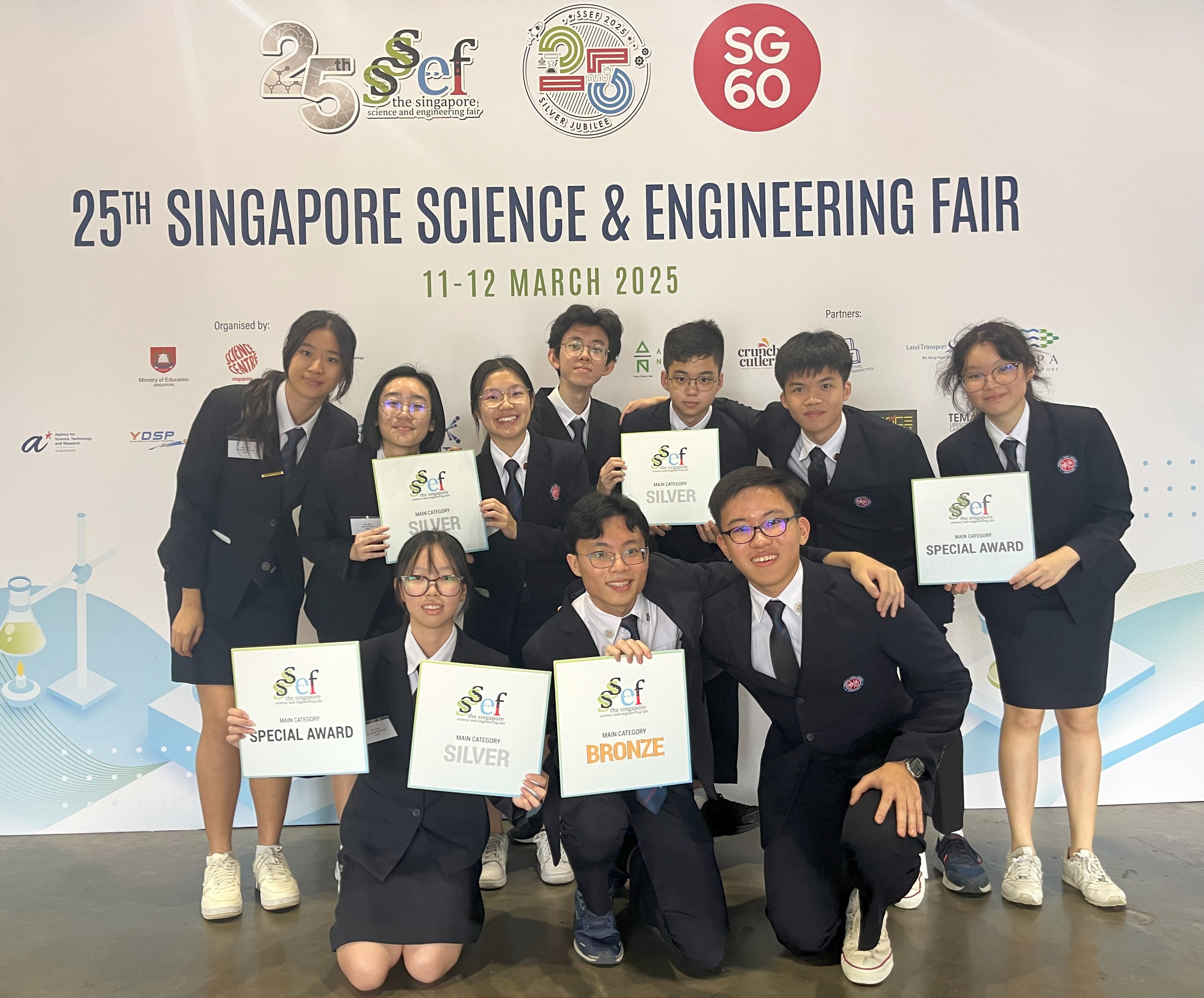
Delivery
The Science Department adopts a range of pedagogical approaches to foster critical thinking and scientific literacy. An inquiry-based approach encourages students to engage in hands-on experiments, open-ended investigations, and real-world problem-solving.
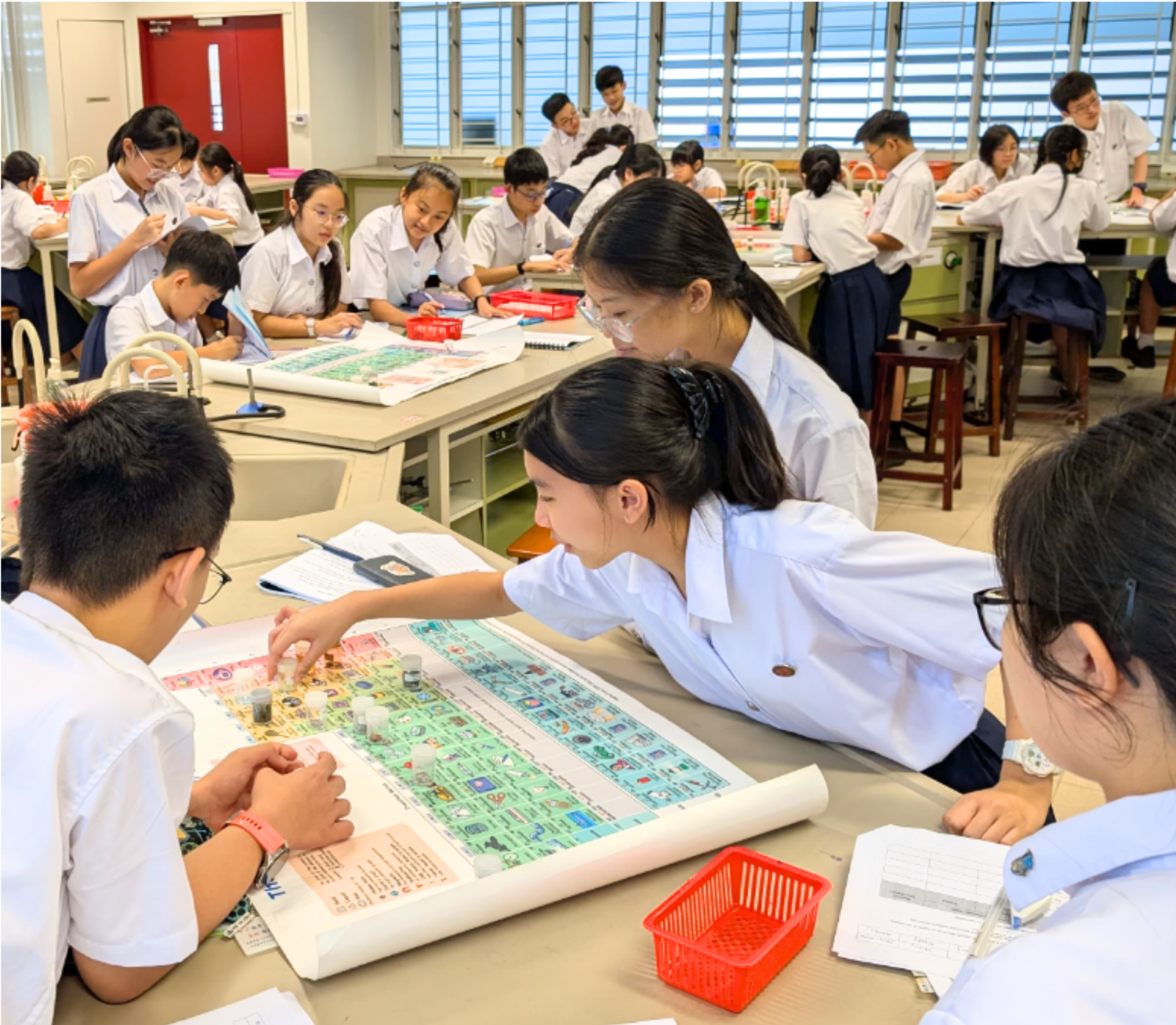
For example, Year 1 students design and build models to direct sunlight effectively into greenhouses as part of the Farming on Mars project. Year 3 Biology students plan and conduct their own investigations to explore enzyme activity under varying conditions. Through structured inquiry, students systematically develop essential science process skills — such as investigating how temperature and concentration affect reaction rates in Chemistry, or performing titrations to determine vitamin C content in food samples.
Beyond experimentation, students engage in case studies, article analyses, and discussions of real-world issues — including the creation of GMOs and controversial environmental topics — where they are encouraged to reflect on the ethical and social implications of scientific advancements.
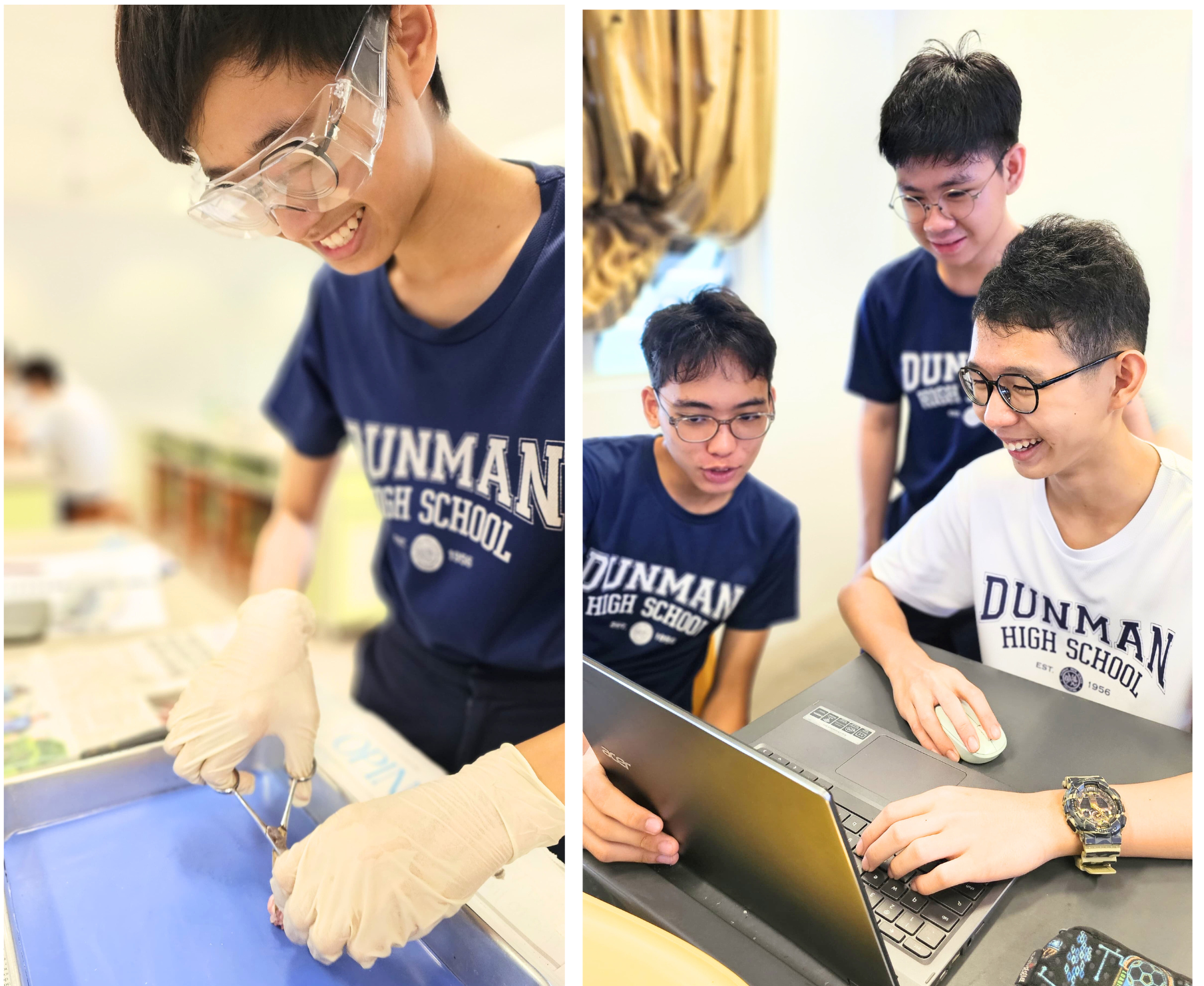
Technology enhances collaborative learning and peer critique, allowing students to share data, review one another’s work, exchange ideas, and refine their understanding through constructive feedback. By leveraging technology, students develop digital literacy alongside scientific reasoning, fostering a learning environment where collaboration and critical evaluation are integral to scientific inquiry.
To nurture 21st Century Competencies — such as critical and adaptive thinking, inventive problem-solving, and effective communication — students engage in creative, hands-on projects like the Rube Goldberg and crane machine challenges, where they apply scientific concepts to solve complex problems. They also participate in performance tasks such as presentations and debates, which further strengthen their ability to communicate and reason scientifically.
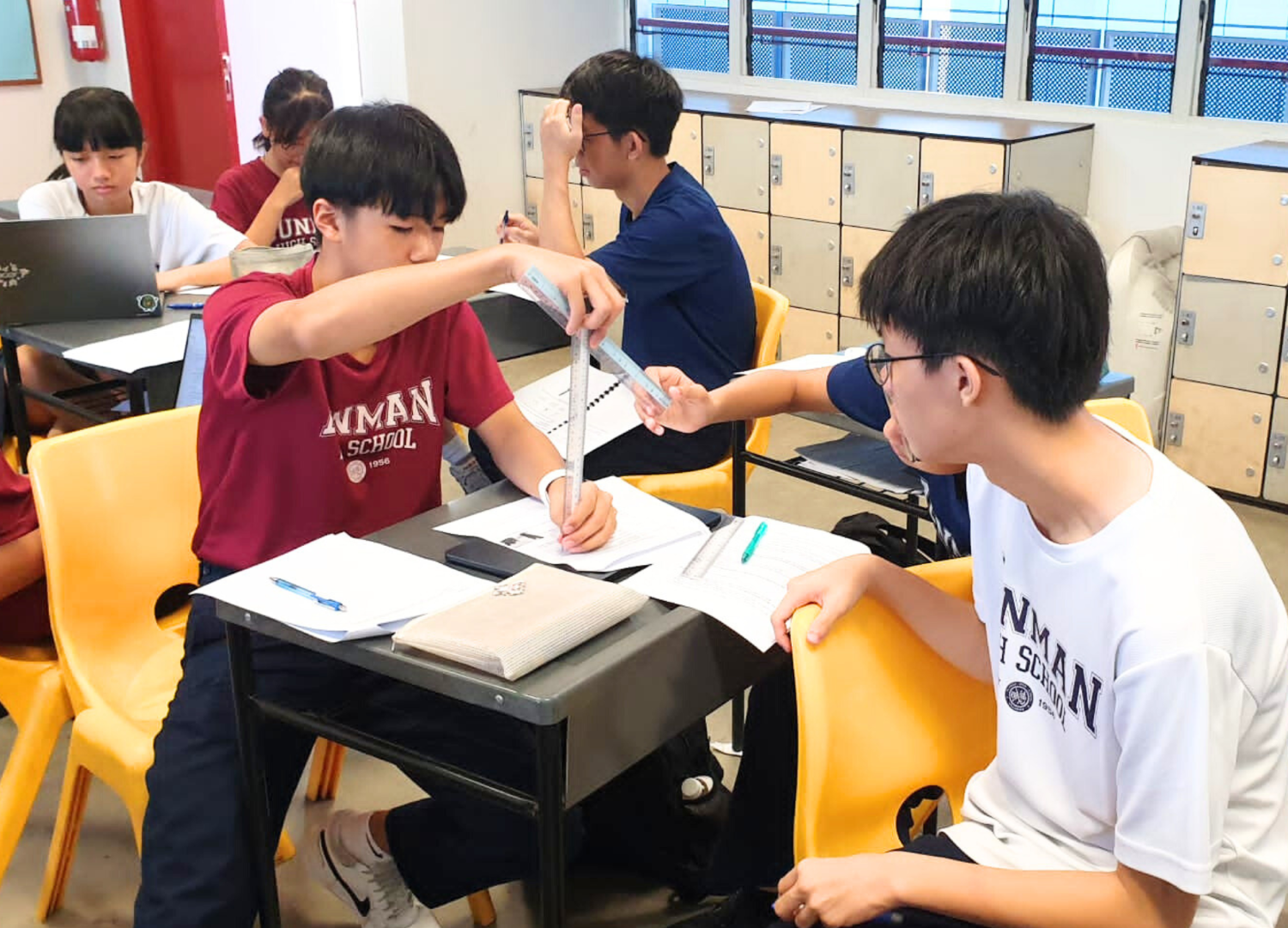
These approaches, often applied in STEM-related contexts, ensure that students not only acquire scientific knowledge, but also cultivate the skills and mindset needed to thrive in a rapidly evolving world.
Assessment
Assessment complements teaching and learning by providing timely and accurate insights into students’ understanding of concepts, mastery of skills, and overall learning progress — for both teachers and students.
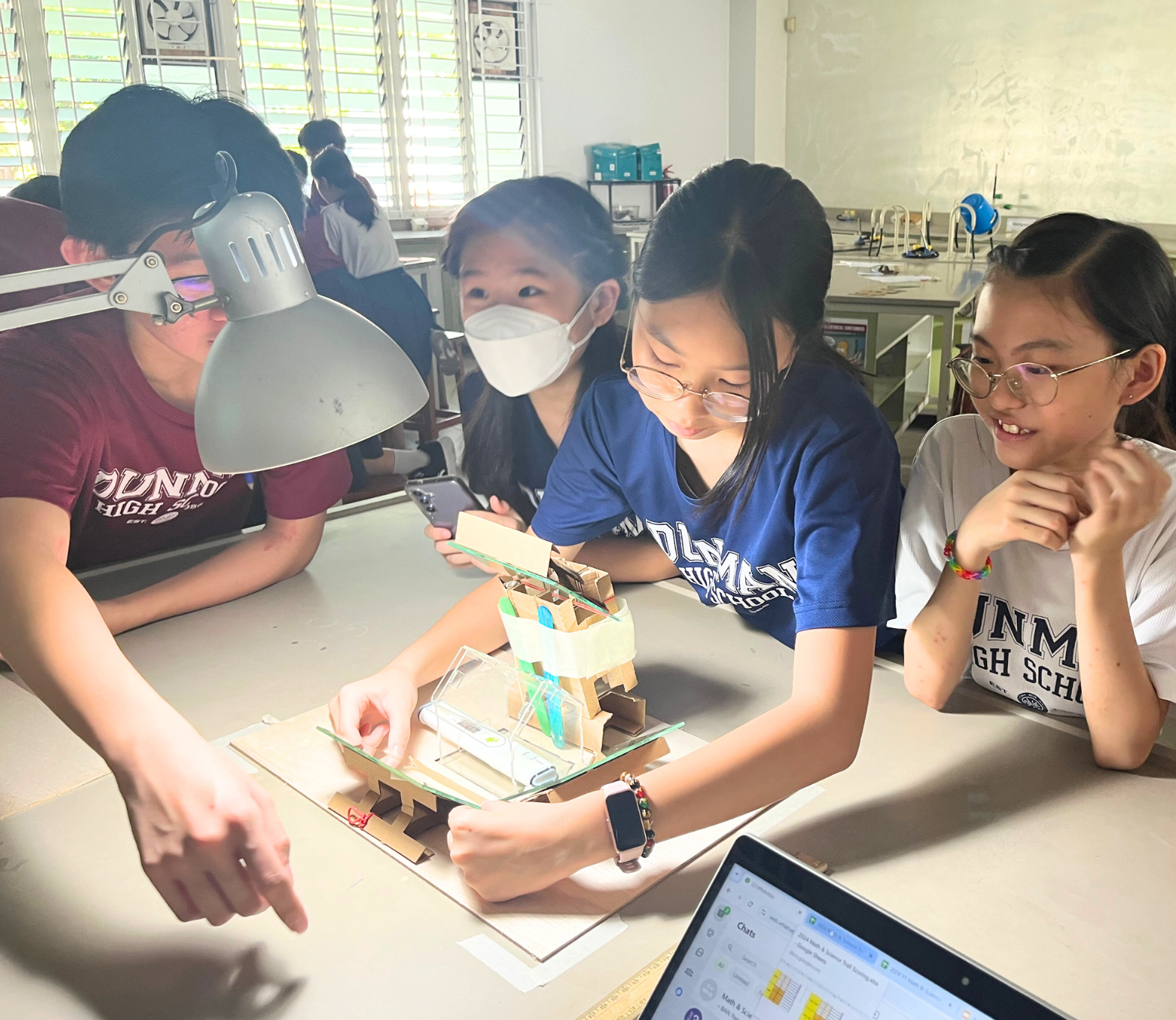
Beyond written tests and assignments, students demonstrate their learning through authentic performance tasks that mirror real-world applications. These include planning and conducting laboratory investigations, as well as designing models or prototypes to communicate scientific concepts and address both scientific and practical challenges.
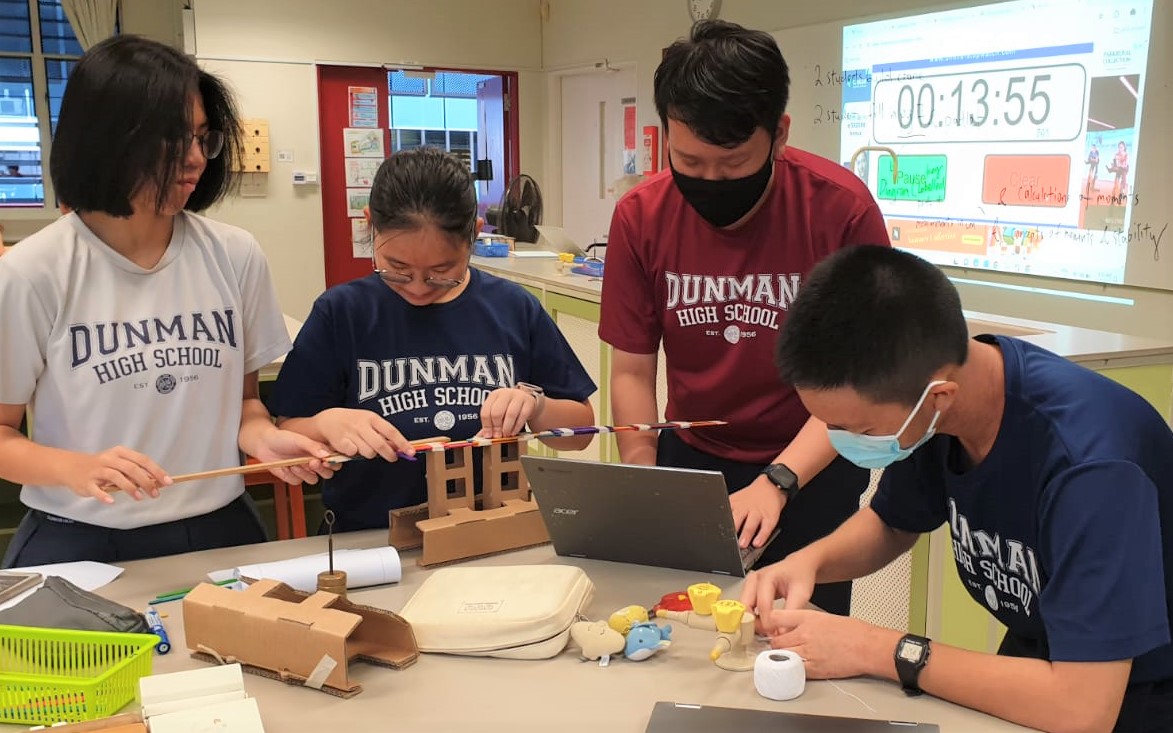
Technology is seamlessly integrated into assessment practices enabling students to complete online quizzes and present their projects digitally. In addition, students are encouraged to reflect on their growth in both disciplinary and affective domains over time. They engage in self-evaluation and benefit from constructive peer feedback, fostering a deeper awareness of their learning journey.

